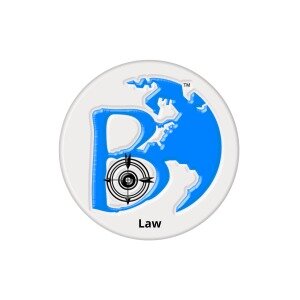Best Native People Lawyers in Mandeville
Share your needs with us, get contacted by law firms.
Free. Takes 2 min.
List of the best lawyers in Mandeville, Jamaica
About Native People Law in Mandeville, Jamaica
Mandeville, located in the parish of Manchester in Jamaica, has a rich cultural history that includes influences from the island's indigenous peoples. However, Jamaica's native people, commonly referred to as the Taino, have largely been assimilated into the broader Jamaican culture since the time of European colonization. Laws related to native people in Jamaica are generally more focused on cultural preservation and recognition rather than specific tribal governance structures as found in some other countries.
Why You May Need a Lawyer
There are several situations where individuals or groups may require legal assistance in matters related to native peoples in Mandeville:
- Engaging in cultural preservation activities or initiatives.
- Dealing with land rights issues, especially if it concerns historical land claims.
- Interpreting and applying laws related to cultural heritage and artifacts.
- Ensuring compliance with regulations when participating in cultural events.
- Representation in disputes related to recognitions or alleged cultural misappropriations.
Local Laws Overview
The legal framework concerning native people in Jamaica, including Mandeville, primarily focuses on cultural preservation and protection. This includes laws related to:
- Protection of archaeological and cultural sites, which is vital for preserving historical artifacts and locations significant to Jamaica’s indigenous heritage.
- Regulations surrounding land use that affect areas historically inhabited or used by native populations.
- Policies that recognize and promote cultural heritage initiatives.
Frequently Asked Questions
What legal recognition do native people have in Jamaica?
Native people in Jamaica are commonly associated with the Taino, and there is limited official recognition concerning governance, but cultural contributions are increasingly acknowledged and protected.
How are indigenous cultural sites protected in Jamaica?
There are laws in place to safeguard archaeological and cultural sites. Illegal excavation and damage to these sites are prohibited and punishable by law.
Can land be claimed based on historical native habitation in Mandeville?
Land claims based on historical native occupancy are complex and typically challenging to pursue due to existing legal frameworks and historical records.
How can I participate legally in cultural preservation activities?
One can collaborate with recognized cultural organizations and ensure compliance with local laws regarding artifact and heritage site protections.
Is there a governing body for native peoples in Mandeville?
No specific governing body exclusively for native peoples exists in Mandeville, but there are cultural organizations dedicated to heritage preservation.
What rights do I have regarding cultural patrimony?
Cultural patrimony is protected under Jamaican laws, allowing individuals and organizations to be part of preserving cultural integrity and preventing unauthorized exploitation.
How do I address grievances related to cultural misappropriation?
Legal advice should be sought to address grievances, with the possibility of working with cultural advocacy groups to resolve disputes appropriately.
Are there educational resources available on native heritage in Jamaica?
Yes, there are museums, cultural centers, and educational publications available that focus on the history and contributions of Jamaica's original inhabitants.
What role does the government play in native cultural preservation?
The government supports cultural preservation through funding, legal protection of historical sites, and promotion of cultural heritage initiatives.
Where can I learn more about native people's contributions to Jamaican culture?
Museums, libraries, and cultural centers in Jamaica offer resources and exhibits that explore the influence of native peoples in shaping Jamaican culture.
Additional Resources
For more information and assistance, consider reaching out to the following:
- The Jamaica National Heritage Trust is an organization dedicated to the protection and promotion of Jamaica's heritage.
- Local cultural groups can offer insight and involvement opportunities related to native heritage preservation.
- Legal aid services in Mandeville can provide guidance on native law-related queries and representation.
Next Steps
If you need legal assistance related to native people in Mandeville, Jamaica, consider the following steps:
- Contact a legal expert with experience in cultural and heritage law.
- Research and connect with local cultural organizations that can provide guidance or collaboration opportunities.
- Engage with online forums and local community groups dedicated to native and cultural heritage issues for support and advice.
- Visit local resource centers such as museums or libraries to educate yourself on the native history and current legal landscape.
Lawzana helps you find the best lawyers and law firms in Mandeville through a curated and pre-screened list of qualified legal professionals. Our platform offers rankings and detailed profiles of attorneys and law firms, allowing you to compare based on practice areas, including Native People, experience, and client feedback.
Each profile includes a description of the firm's areas of practice, client reviews, team members and partners, year of establishment, spoken languages, office locations, contact information, social media presence, and any published articles or resources. Most firms on our platform speak English and are experienced in both local and international legal matters.
Get a quote from top-rated law firms in Mandeville, Jamaica — quickly, securely, and without unnecessary hassle.
Disclaimer:
The information provided on this page is for general informational purposes only and does not constitute legal advice. While we strive to ensure the accuracy and relevance of the content, legal information may change over time, and interpretations of the law can vary. You should always consult with a qualified legal professional for advice specific to your situation.
We disclaim all liability for actions taken or not taken based on the content of this page. If you believe any information is incorrect or outdated, please contact us, and we will review and update it where appropriate.








